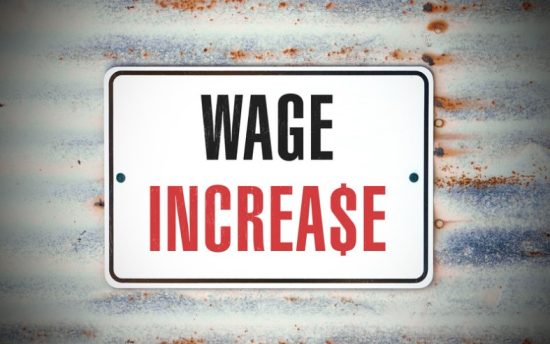Welcome to our blog post on the Ottawa Minimum Wage – where we take a closer look at this hotly debated topic that affects workers, small businesses, and the local economy. Whether you’re an employee trying to make ends meet or a business owner striving to balance your books, understanding the ins and outs of minimum wage in Ottawa is crucial.
So join us as we dive deep into its implications, advantages, disadvantages, and everything in between! Get ready for an eye-opening exploration of how this policy impacts our city’s workforce and economy. Let’s get started!
What is the Ottawa Minimum Wage?

The Ottawa minimum wage refers to the lowest hourly rate that employers are legally required to pay their employees in the city of Ottawa, Ontario. It is an important aspect of labour regulations designed to protect workers and ensure they receive fair compensation for their work.
Currently, the minimum wage in Ottawa is $15.50 per hour for most employees. However, there are some exceptions and variations depending on factors such as age, experience level, and type of employment.
One of the main purposes of a minimum wage is to provide workers with a basic standard of living. It helps individuals afford essential expenses like food, housing, transportation, and healthcare. Additionally, it aims to reduce income inequality by ensuring that even low-skilled or entry-level workers earn a decent income.
However, there are also arguments against having a high minimum wage. Critics argue that it can lead to job losses as businesses may struggle financially due to increased labour costs. Others believe that it discourages employers from hiring new staff or investing in employee training programs.
The Pros and Cons of the Minimum Wage in Ottawa?
One of the most debated topics in labour economics is the minimum wage. It’s a policy that sets a legal floor on how much employers can pay their employees per hour of work. In Ottawa, like in many other cities, there are both pros and cons to having a minimum wage.
On the pro side, one of the biggest advantages of having a minimum wage is that it helps protect workers from exploitation. Setting a baseline for wages ensures that workers are paid at least a certain amount for their hard work. This can help reduce income inequality and provide more financial stability for low-wage workers.
Another benefit is that by increasing the minimum wage, it can stimulate consumer spending and boost local economies. When workers make extra money, they are more likely to spend it on goods and services, which supports local businesses.
However, there are also some potential downsides to consider. One concern is that raising the minimum wage could lead to job losses or reduced working hours as businesses try to offset higher labour costs. Small businesses may struggle especially with increased expenses and might be forced to cut back on hiring or even close down altogether.
Effects of Minimum Wage on Small Businesses in Ottawa

Small businesses play a crucial role in the Ottawa economy, providing employment opportunities and contributing to local communities. However, when it comes to the minimum wage, these small businesses can face both positive and negative effects.
On the one hand, an increase in the minimum wage can put a financial strain on small businesses. With limited resources and tight profit margins, they may struggle to accommodate higher labour costs. This could lead to reduced hours for employees or even layoffs, negatively impacting both business owners and workers.
On the other hand, a higher minimum wage can also positively affect small businesses. When workers earn more money, they have more disposable income, which they are likely to spend locally. This increased consumer spending can benefit small businesses by boosting sales and stimulating economic growth.
However, it’s important to note that not all small businesses are affected equally by changes in the minimum wage. Some industries may be more heavily impacted due to differences in cost structures or reliance on low-wage labour.
Are There Any Exemptions to the Minimum Wage?
When it comes to the minimum wage in Ottawa, certain exemptions need to be taken into consideration. While the majority of employees are entitled to receive at least the minimum wage set by law, there are a few exceptions.
- One exemption applies to students who work part-time and are under 18 years old. These young workers may be paid a lower minimum wage than their adult counterparts. This exemption is intended to encourage employers to hire young individuals who may have limited experience or skills.
- Another exemption exists for liquor servers. In Ottawa, these workers can be paid a lower minimum wage because they receive tips as part of their income. The idea behind this exemption is that server wages will be supplemented by gratuities received from customers.
- It’s worth noting that while these exemptions exist, they do not apply across all provinces and territories in Canada. Each jurisdiction has its own specific rules regarding minimum wage exemptions.
- Although most employees in Ottawa are entitled to receive at least the minimum wage, there are exceptions for certain groups, such as students and liquor servers. These exemptions aim to strike a balance between providing fair wages and accommodating specific circumstances within the job market.
Impact of Raising the Minimum Wage in Ottawa

Raising the minimum wage can have a significant impact on both employees and employers in Ottawa. On one hand, it aims to improve the standard of living for workers by providing them with a higher income. This can lead to increased spending power and potentially stimulate economic growth in the region.
However, there are potential drawbacks to consider as well. For small businesses, an increase in labour costs may pose challenges, especially if they operate on tight profit margins. Some employers may be forced to reduce employee hours or even lay off staff to offset these additional expenses.
Moreover, raising the minimum wage could also result in price increases for goods and services as businesses try to compensate for their increased labour costs. This could potentially impact consumers who might find themselves paying more for everyday necessities.
Another factor that needs consideration is how raising the minimum wage affects job creation and employment opportunities within Ottawa’s economy. While it may provide better compensation for existing employees, some argue that it could discourage new job openings or hiring initiatives by businesses hesitant about absorbing higher payroll expenses.
Conclusion
The Ottawa minimum wage plays a crucial role in ensuring fair compensation for workers in the city. It sets a wage baseline and helps alleviate poverty and income inequality. While there are pros and cons associated with the minimum wage, it is also important to consider its impact on small businesses.
Different businesses can feel the effects of the minimum wage differently, with some benefitting from increased consumer spending power while others struggle to absorb higher labour costs. However, exemptions do exist for certain industries or types of employment.
Raising the minimum wage in Ottawa has been a topic of debate, with proponents arguing that it would improve living standards and stimulate economic growth. On the other hand, opponents express concerns about potential job losses and negative impacts on small businesses.
FAQs – Ottawa Minimum Wage
1. Is it expensive to live in Ottawa?
Despite being the nation’s capital, Ottawa has one of the lowest costs of living in the nation. Ottawa is ranked 137th out of 227 cities in the 2023 Mercer Cost of Living Survey, making it Canada’s fourth most expensive city.
2. Is Ottawa Canada a good place to live?
Ottawa has the second-highest quality of life of any major city in the Americas and ranks 14th globally. Living in Ottawa also means you’ll be in the second and third-cleanest cities in the world, respectively.
3. What salary do you need to live in Ottawa?
For a single renter in Ottawa, the average monthly cost of living is $3,570. The price of housing, transportation, groceries, and entertainment are just a few of the many variables that go into calculating this average.











